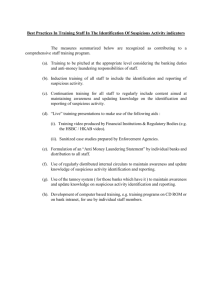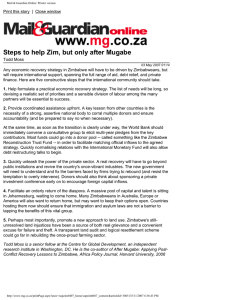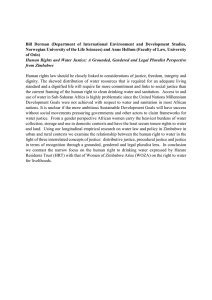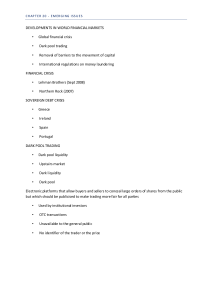Zimbabwe Financial Intelligence Unit: AML/CFT Compliance
advertisement
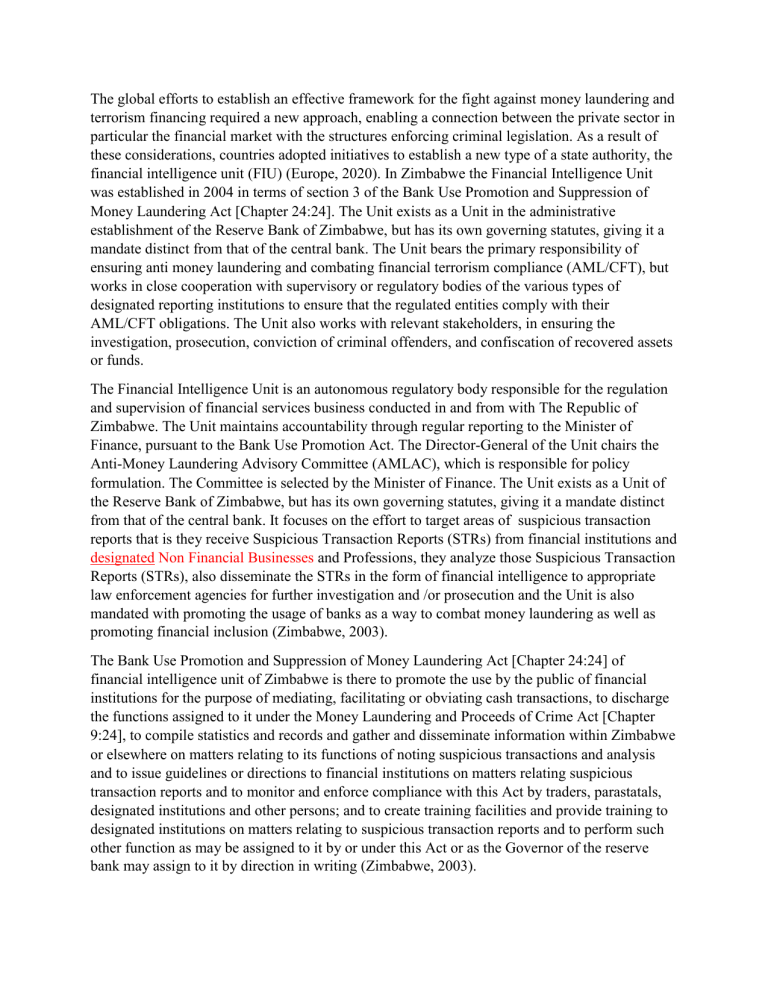
The global efforts to establish an effective framework for the fight against money laundering and terrorism financing required a new approach, enabling a connection between the private sector in particular the financial market with the structures enforcing criminal legislation. As a result of these considerations, countries adopted initiatives to establish a new type of a state authority, the financial intelligence unit (FIU) (Europe, 2020). In Zimbabwe the Financial Intelligence Unit was established in 2004 in terms of section 3 of the Bank Use Promotion and Suppression of Money Laundering Act [Chapter 24:24]. The Unit exists as a Unit in the administrative establishment of the Reserve Bank of Zimbabwe, but has its own governing statutes, giving it a mandate distinct from that of the central bank. The Unit bears the primary responsibility of ensuring anti money laundering and combating financial terrorism compliance (AML/CFT), but works in close cooperation with supervisory or regulatory bodies of the various types of designated reporting institutions to ensure that the regulated entities comply with their AML/CFT obligations. The Unit also works with relevant stakeholders, in ensuring the investigation, prosecution, conviction of criminal offenders, and confiscation of recovered assets or funds. The Financial Intelligence Unit is an autonomous regulatory body responsible for the regulation and supervision of financial services business conducted in and from with The Republic of Zimbabwe. The Unit maintains accountability through regular reporting to the Minister of Finance, pursuant to the Bank Use Promotion Act. The Director-General of the Unit chairs the Anti-Money Laundering Advisory Committee (AMLAC), which is responsible for policy formulation. The Committee is selected by the Minister of Finance. The Unit exists as a Unit of the Reserve Bank of Zimbabwe, but has its own governing statutes, giving it a mandate distinct from that of the central bank. It focuses on the effort to target areas of suspicious transaction reports that is they receive Suspicious Transaction Reports (STRs) from financial institutions and designated Non Financial Businesses and Professions, they analyze those Suspicious Transaction Reports (STRs), also disseminate the STRs in the form of financial intelligence to appropriate law enforcement agencies for further investigation and /or prosecution and the Unit is also mandated with promoting the usage of banks as a way to combat money laundering as well as promoting financial inclusion (Zimbabwe, 2003). The Bank Use Promotion and Suppression of Money Laundering Act [Chapter 24:24] of financial intelligence unit of Zimbabwe is there to promote the use by the public of financial institutions for the purpose of mediating, facilitating or obviating cash transactions, to discharge the functions assigned to it under the Money Laundering and Proceeds of Crime Act [Chapter 9:24], to compile statistics and records and gather and disseminate information within Zimbabwe or elsewhere on matters relating to its functions of noting suspicious transactions and analysis and to issue guidelines or directions to financial institutions on matters relating suspicious transaction reports and to monitor and enforce compliance with this Act by traders, parastatals, designated institutions and other persons; and to create training facilities and provide training to designated institutions on matters relating to suspicious transaction reports and to perform such other function as may be assigned to it by or under this Act or as the Governor of the reserve bank may assign to it by direction in writing (Zimbabwe, 2003).
